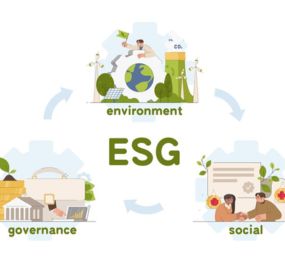In today's interconnected world, businesses face increasing pressure to operate sustainably and responsibly. Environmental, Social, and Governance (ESG) factors are no longer merely a compliance issue; they are fundamental to long-term business success. Companies that integrate ESG principles into their core strategies are not only mitigating risks but also unlocking significant opportunities for growth and resilience.
Key Drivers of ESG Integration:
- Investor Demand: Investors are increasingly prioritizing ESG factors in their investment decisions. Companies with strong ESG performance are more likely to attract capital and achieve higher valuations.
- Consumer Expectations: Consumers are increasingly demanding products and services from companies that demonstrate a commitment to sustainability and social responsibility.
- Regulatory Pressures: Governments worldwide are enacting stricter regulations related to environmental protection, social justice, and corporate governance.
- Technological Advancements: Technological advancements are enabling companies to collect and analyze ESG data more effectively, track their progress, and identify new opportunities for improvement.
Benefits of ESG Integration:
- Enhanced Risk Management: By proactively identifying and mitigating environmental, social, and governance risks, companies can improve their resilience and safeguard their long-term viability.
- Improved Financial Performance: Studies have shown a strong correlation between strong ESG performance and financial returns. Companies with robust ESG practices tend to exhibit lower volatility, higher profitability, and improved access to capital.
- Increased Innovation: ESG integration can drive innovation and create new business opportunities. By embracing sustainable practices and addressing social challenges, companies can develop new products, services, and business models that meet the evolving needs of their customers and stakeholders.
- Enhanced Reputation and Brand Value: A strong ESG reputation can attract and retain top talent, build customer loyalty, and enhance brand value.
- Improved Stakeholder Relations: By engaging with stakeholders on ESG issues, companies can build stronger relationships with employees, customers, suppliers, and communities.
ESG integration is no longer a choice but a necessity for businesses that aim to thrive in the 21st century. By embracing sustainability, mitigating risks, and seizing new opportunities, companies can not only contribute to a more sustainable future but also unlock significant value for their shareholders and stakeholders.
For more information and registration details, visit the official website: https://www.leadventgrp.com/events/2nd-annual-world-esg-and-climate-summit/details
For more information and group participation, contact us: [email protected]
















